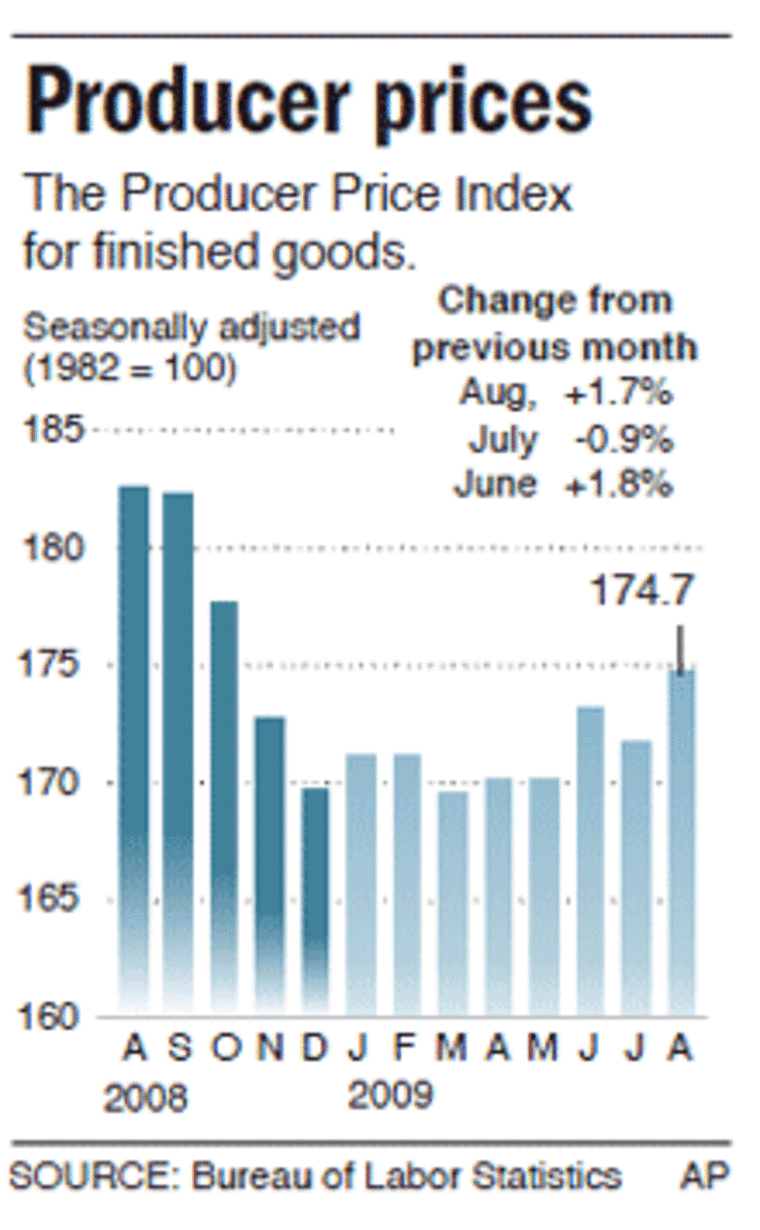U.S. inflation at the wholesale level shot up at double the expected rate in August as gasoline prices soared by the largest amount in a decade.
The increase wasn't seen as a signal that inflation was in danger of becoming a problem, however, given the economy's continued weakness.
The Labor Department said Tuesday that wholesale prices rose by 1.7 percent in August, sharply higher than the 0.8 percent rise economists had forecast. Wholesale prices had fallen by 0.9 percent in July. Both months were heavily impacted by energy prices.
Excluding volatile energy and food costs, core inflation posted a more modest 0.2 percent increase, close to the 0.1 percent advance economists had expected.
While many analysts believe the economy is staging a recovery in the current July-September quarter from the longest recession in seven decades, the rebound is not expected to trigger inflation pressures because the labor market remains weak.
The unemployment rate, currently at a 26-year high of 9.7 percent, is expected to hit 10 percent by the end of this year and keep rising to around 10.3 percent next spring before starting to decline.
Federal Reserve policymakers, who meet next week, are expected to keep the federal funds rate, the interest that banks charge each other on overnight loans, at a record low of zero to 0.25 percent.
The rate has been at that level since last December as the central bank has employed a number of exceptional measures to fight the current recession and stabilize the financial system.
Wholesale prices have been on a rollercoaster in recent months, reflecting wide swings in energy costs. Over the past 12 months, wholesale prices are down 4.3 percent, compared to a 6.8 percent drop for the 12 months ending in July, which had been the largest decline on records going back to 1947.

Energy prices were up 8 percent in August after having fallen 2.4 percent in July. The big surge last month was led by a 23 percent rise in gasoline costs, the biggest one-month gain since a 28.8 percent rise in April 1999.
Food costs edged up 0.4 percent last month after having fallen 1.5 percent in July. The August increase was led by big increases in the cost of fresh fruits, eggs and cheese.
The 0.2 percent rise in core inflation, which excludes food and energy, left core inflation over the past 12 months rising by 2.3 percent. The gain last month was led by a 0.7 percent rise in the cost of passenger cars.
The government will provide a look at consumer prices on Wednesday. Economists surveyed by Thomson Reuters were forecasting a modest increase of 0.3 percent for the overall figure, reflecting in part higher energy costs at the retail level. Excluding food and energy, consumer prices are expected to post a modest gain of 0.1 percent.
Gasoline prices did jump in the spring but have been moderating in recent weeks.